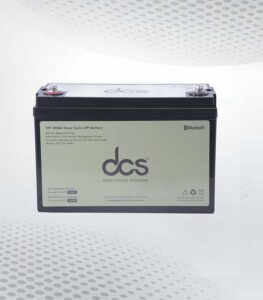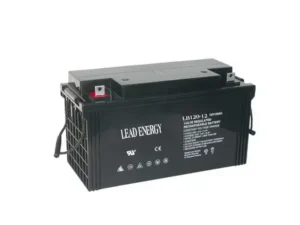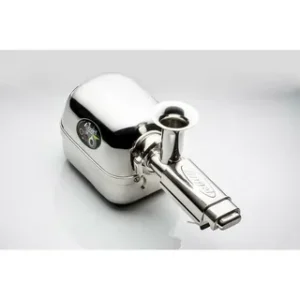Deep cycle batteries are distinct from traditional car batteries in that they are designed to deliver a steady current over extended periods. This characteristic makes them ideal for RVs and campers requiring consistent power. Their construction allows them to withstand numerous charge and discharge cycles, ensuring reliability during off-grid travels. When choosing a 100Ah 12V deep cycle battery, various factors must be considered to ensure it aligns with the energy demands and operational conditions of mobile living.
The Significance of Battery Capacity
The capacity of a battery, measured in ampere-hours (Ah), indicates how long it can provide power before needing a recharge. For instance, a 100Ah battery can supply 1 amp of current for 100 hours or ten amps for 10 hours. Accurately calculating the daily power consumption of all onboard appliances and systems in a caravan or camper is essential to determine capacity. This ensures the selected battery can efficiently meet energy demands without frequent recharging.
Voltage Considerations
The choice of a 12V battery is prevalent among RV and camper owners due to its compatibility with most recreational vehicle systems. Standard RV appliances and lighting systems typically operate on a 12V supply, simplifying installation and usage. Compatibility with existing systems helps to prevent electrical issues and avoids the additional expenses associated with modifying the vehicle’s electrical setup. Ensuring that the selected battery matches the voltage requirements of the RV’s systems is a critical factor in ensuring seamless operation.
Grasping Charging Requirements
Understanding the charging needs of a 100 Ah 12V deep cycle battery is crucial for optimal performance in your RV or camper. Here’s a breakdown of factors to consider.
Consider Your Battery Charger Compatibility
Ensure your charger is compatible with a 12V deep cycle battery. This ensures efficient charging without damage.
Choose the Right Charging Method
Decide between a standard or multi-stage charger. Multi-stage chargers offer better battery health and faster charging times.
Monitor Charge Cycles and Time
The number of charge cycles affects battery longevity. Calculate the required charging time-based on your daily energy usage to avoid overcharging.
Account for Solar Charging Options
Solar charging is an eco-friendly solution for maintaining battery levels. Ensure your solar system is properly sized for your power needs.
Pay Attention to Temperature Effects
Temperature influences charging efficiency. Hot or cold environments can impact the performance of both the charger and the battery.
How to Select the Right 12V 100Ah Deep Cycle Battery for Long-Term Camping
Choosing the right 12V 100 Ah deep cycle battery for your RV or camper is essential for long-term camping. Start by assessing your power needs. Consider the types of appliances you’ll be using, their energy consumption, and how often you’ll need to charge the battery. The battery’s capacity should sufficiently support these devices for the desired time without draining it completely.
Next, consider the battery’s lifespan and durability. Deep cycle batteries are designed for frequent discharge and recharge, so selecting one that can handle repeated cycles is crucial. Additionally, check the battery’s charging time and efficiency, as faster charging can be beneficial during longer stays in remote locations.
Finally, consider the battery’s weight and size to ensure it fits your RV or camper’s available space. A 12V 100Ah deep cycle battery is popular for many campers due to its balance between capacity and portability. Select a reliable model that is easy to maintain and provides consistent performance throughout your trip, ensuring you can enjoy your camping experience without worrying about power shortages.
Options for Battery Types
Several 100 fAh 12V deep cycle battery types are available, each offering distinct benefits. Absorbent Glass Mat (AGM) batteries are appreciated for their maintenance-free design and robust cycle life. Gel batteries, known for their performance in extreme temperatures, also boast a maintenance-free advantage. Although more expensive, lithium-ion batteries provide a longer lifespan, lightweight construction, and higher efficiency. Each battery type presents unique characteristics, making them suitable for various needs and financial considerations.
Assessing Battery Life and Longevity
Several factors, such as the number of discharge cycles, depth of discharge, and operating temperature, influence battery lifespan. It is essential to evaluate the cycle rating, which indicates how many charge and discharge cycles a battery can handle before its capacity reduces. Opting for a battery with a high cycle rating and robust construction ensures longer service life. Additionally, considering the depth of discharge, or how much of the battery’s capacity is used before recharging, can impact longevity. Batteries consistently discharged to lower levels may have a reduced lifespan. Operating temperature also plays a role; maintaining a moderate temperature range can help maximise the battery’s life and efficiency.
Considerations of Weight and Size
The weight and size of a deep-cycle battery can significantly impact an RV or camper’s performance. Heavy batteries might negatively influence the vehicle’s fuel efficiency and handling, while larger batteries require ample installation space. Balancing the battery’s capacity with its physical dimensions is crucial to ensure it fits comfortably within the designated area without affecting the vehicle’s overall performance. Careful measurement and planning can help accommodate the battery without compromising essential space or adding undue weight.
Maintenance Needs
Maintaining your 100 Ah 12V deep cycle battery ensures optimal performance and longevity in your RV or camper.
Regular Inspections for Safety and Efficiency
Frequent visual checks help spot signs of wear, corrosion, or leakage. Regular inspections ensure the battery remains safe and functional for your travels.
Proper Cleaning to Extend Lifespan
Dust, dirt, and corrosion can negatively impact battery performance. Cleaning terminals and connections with a non-corrosive solution prevents energy loss and ensures a reliable power source.
Maintaining Proper Charge Levels
Ensure the battery is charged to an appropriate voltage level. Overcharging or deep discharging can reduce its lifespan. Using a charger designed for deep-cycle batteries is essential for maintaining optimal health.
Temperature Control to Prevent Damage
Extremes in temperature can affect a battery’s performance. Storing the battery in a climate-controlled space or ensuring it’s insulated during travel can prevent overheating or freezing, which can harm its internal components.
Regularly Monitor Battery Health
Using a battery monitor helps track voltage levels and performance, alerting you to any decline in health. Monitoring these readings allows for timely maintenance or replacement.
12V 100Ah Battery Deep Cycle: What to Look for In the Best RV Power Supply
When choosing a 12V 100Ah deep cycle battery for your RV or camper, it’s essential to prioritise reliability and longevity. A good battery should be able to withstand frequent discharges and recharges, providing you with consistent power during your travels. Pay attention to the battery’s construction, including the materials used for the plates and casing, as these impact performance and durability in different weather conditions.
Additionally, consider the battery’s charge and discharge cycles. A high-quality 12V 100Ah battery deep cycle should offer a high number of cycles, meaning it can be charged and discharged many times without losing efficiency. Look for batteries that provide a long lifespan, ensuring you won’t need to replace them frequently.
Another key factor is the battery’s compatibility with your RV’s power system. Check for the correct voltage and ensure it meets your specific power needs, factoring in the appliances you plan to use. Opt for a battery that offers easy maintenance, such as sealed or maintenance-free types, for convenience during your trips. With the right choice, you’ll enjoy a reliable power source for your RV, making your adventures more comfortable.
Cost against Value
Initial expenditure is a key factor when choosing a battery, yet it is crucial to weigh this against long-term benefits and potential savings. Lower-cost batteries may not offer the durability or efficiency required, resulting in higher expenses over time due to frequent replacements. A higher-quality 100 Ah 12V deep cycle battery can deliver superior longevity and performance, offering greater reliability and financial savings in the long run. Thus, investing in a premium battery often proves cost-effective over its lifespan, providing dependable power for various needs.
Temperature Resilience
Temperature fluctuations encountered during travel can significantly impact battery efficiency and longevity. For instance, Gel batteries are renowned for maintaining performance in extreme conditions, making them suitable for diverse climates. Conversely, other battery types may experience diminished efficiency in severe cold or hot temperatures. Understanding the specific temperature tolerance of a battery is crucial for ensuring it remains reliable across various environments. A battery’s ability to perform under different temperature ranges is a key consideration, particularly for those anticipating travel through regions with varying climate conditions. This knowledge aids in selecting a battery that maintains consistent power delivery regardless of external temperatures.
Environmental Considerations
Environmental impact is a growing concern, and choosing a battery that aligns with eco-friendly practices is important. Lithium-ion batteries tend to have a lower environmental footprint due to their extended lifespan and efficiency. Additionally, recycling and disposal processes differ among battery types, with some more environmentally responsible options. Considering these aspects ensures a more sustainable approach to meeting power needs.
Conclusion
Choosing the right 100Ah 12V deep cycle battery for your RV or camper is essential for ensuring a reliable power source during your travels. Consider factors like battery type, lifespan, charging compatibility, and weight to match your needs. A high-quality deep-cycle battery will provide consistent performance, even under heavy use. Investing in a durable and efficient battery can help you avoid disruptions, keeping your devices and appliances running smoothly. Always research your options and consult with professionals to make the best choice for your adventures.
FAQ’s
What is the difference between a deep-cycle battery and a regular car battery?
A deep-cycle battery is designed to provide steady power over a long period, making it ideal for RVs and campers. Unlike regular car batteries, which provide quick bursts of energy to start the engine, deep-cycle batteries are made for sustained use over time.
How long will a 100Ah 12V deep cycle battery last?
The lifespan of a 100Ah 12V deep cycle battery can vary depending on factors like usage, charging practices, and environmental conditions. Generally, with proper care, it can last 4-6 years. Regular maintenance, such as keeping the battery charged and avoiding deep discharges, can help extend its lifespan.
Can I use a deep-cycle battery to start my RV engine?
Deep-cycle batteries are designed for powering accessories and appliances over time, not for starting engines. For engine starting, you should use a starting battery or a combination of deep-cycle and starting batteries.
How do I know if my 100 Ah 12V deep cycle battery is fully charged?
You can use a battery monitor or voltmeter to determine if your battery is fully charged. A fully charged 12V battery typically reads between 12.6V and 12.8V when not under load. If you’re using a smart charger, it will usually indicate when the battery is fully charged.
Should I choose AGM, lithium, or flooded lead acid for my 100Ah deep cycle battery?
The choice depends on your specific needs. AGM and lithium batteries are more expensive but offer longer lifespans, faster charging, and are maintenance-free. Flooded lead-acid batteries are more affordable but require regular maintenance, including checking the water levels and ensuring proper ventilation.
| Related Business Listings |
| Contact Directory |
| Local Business Profiles |




